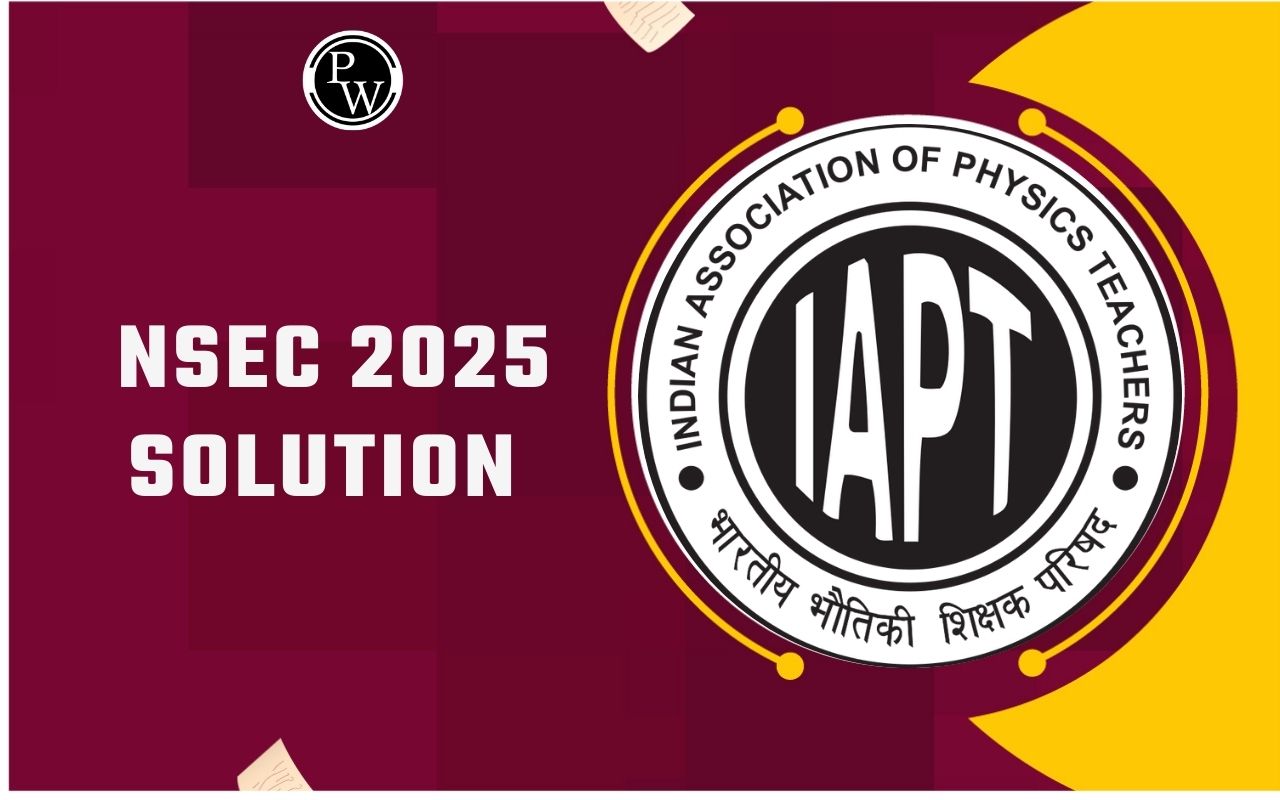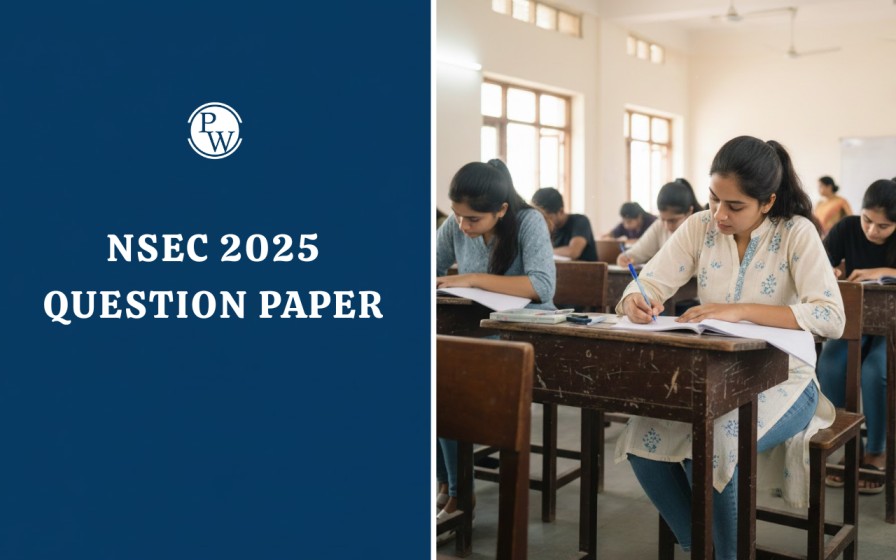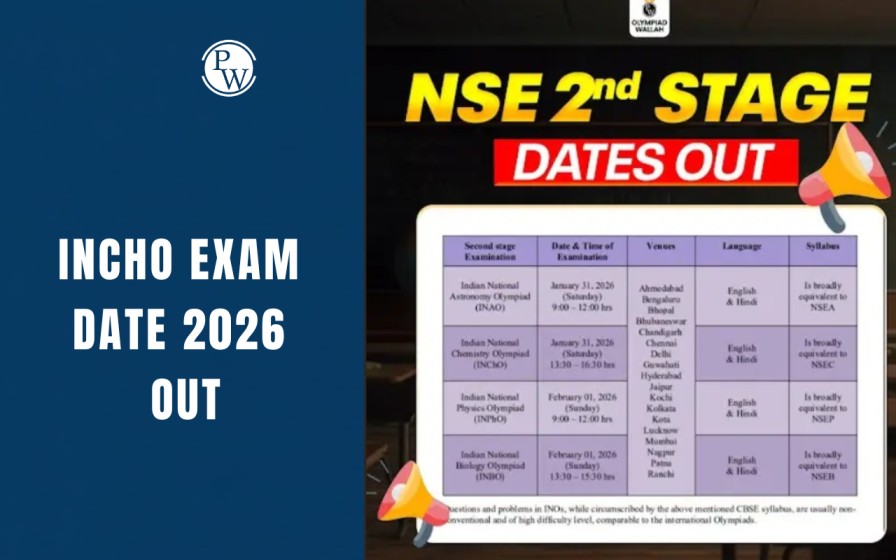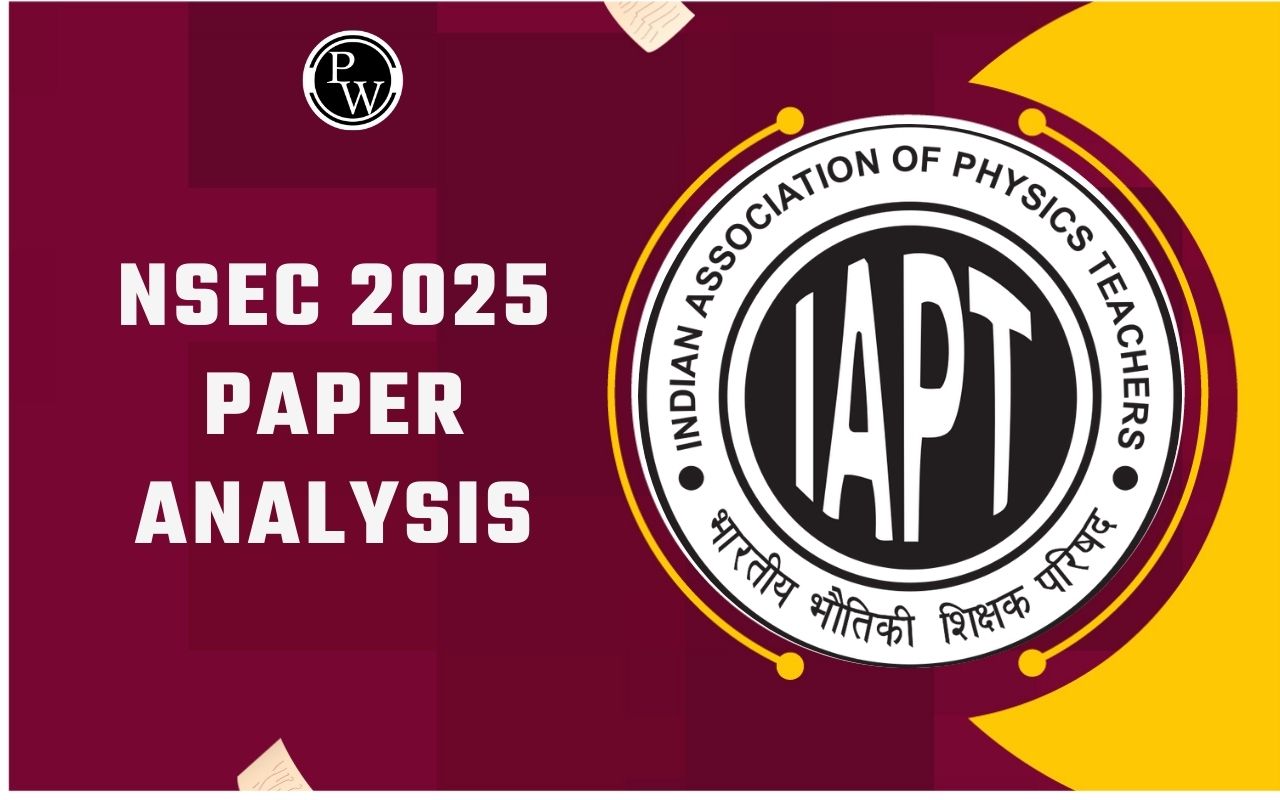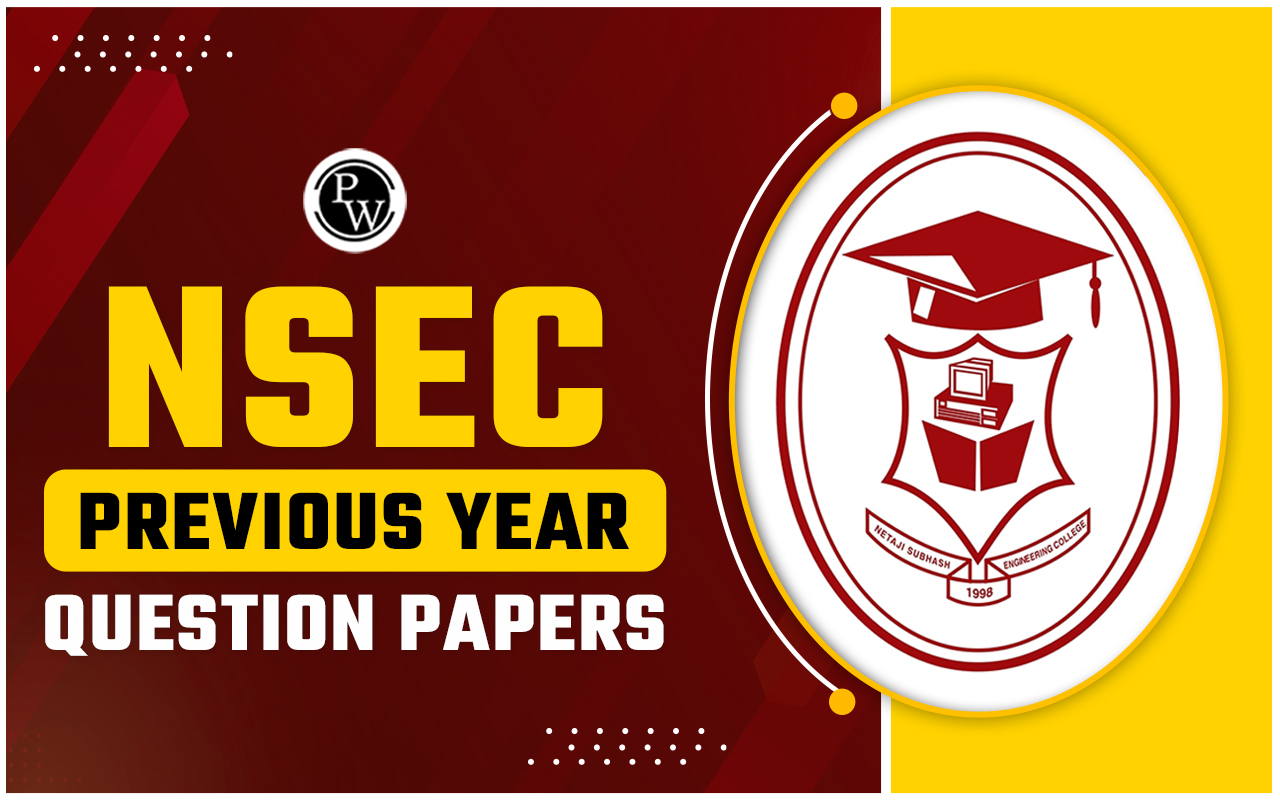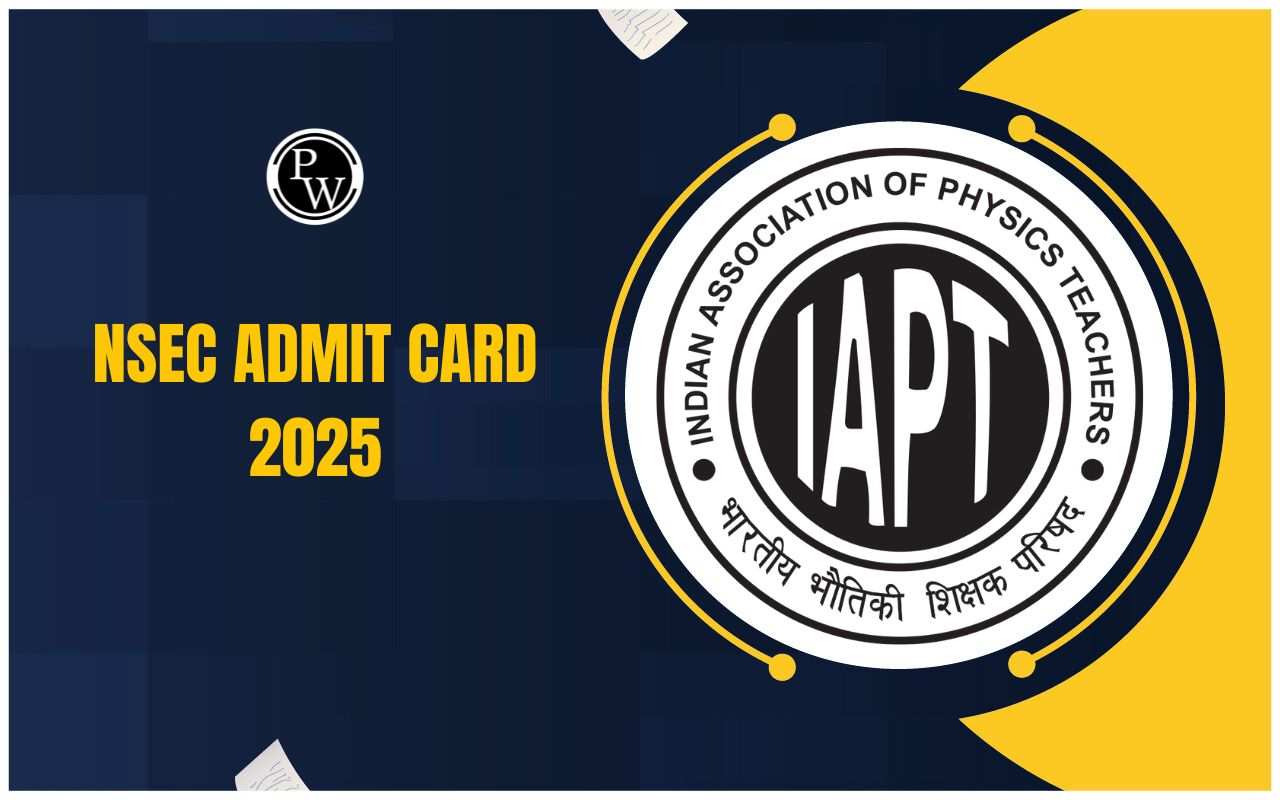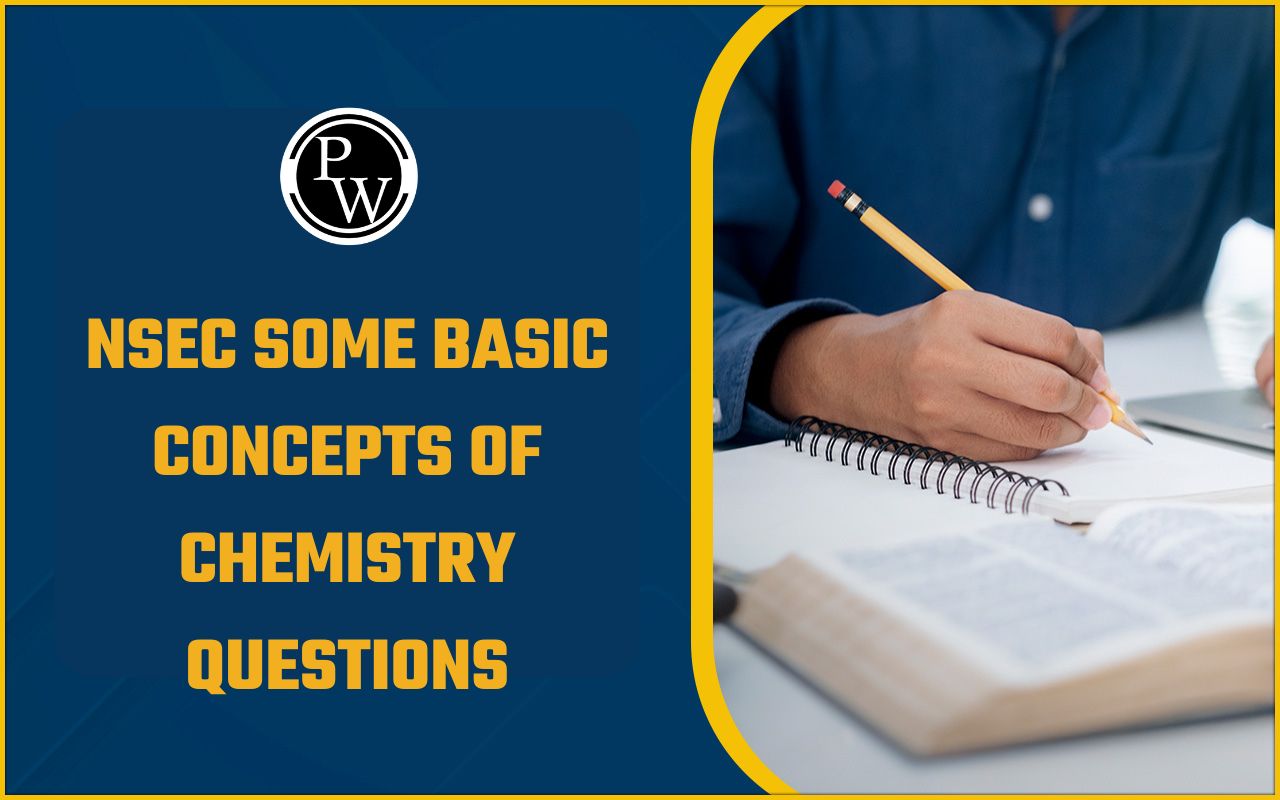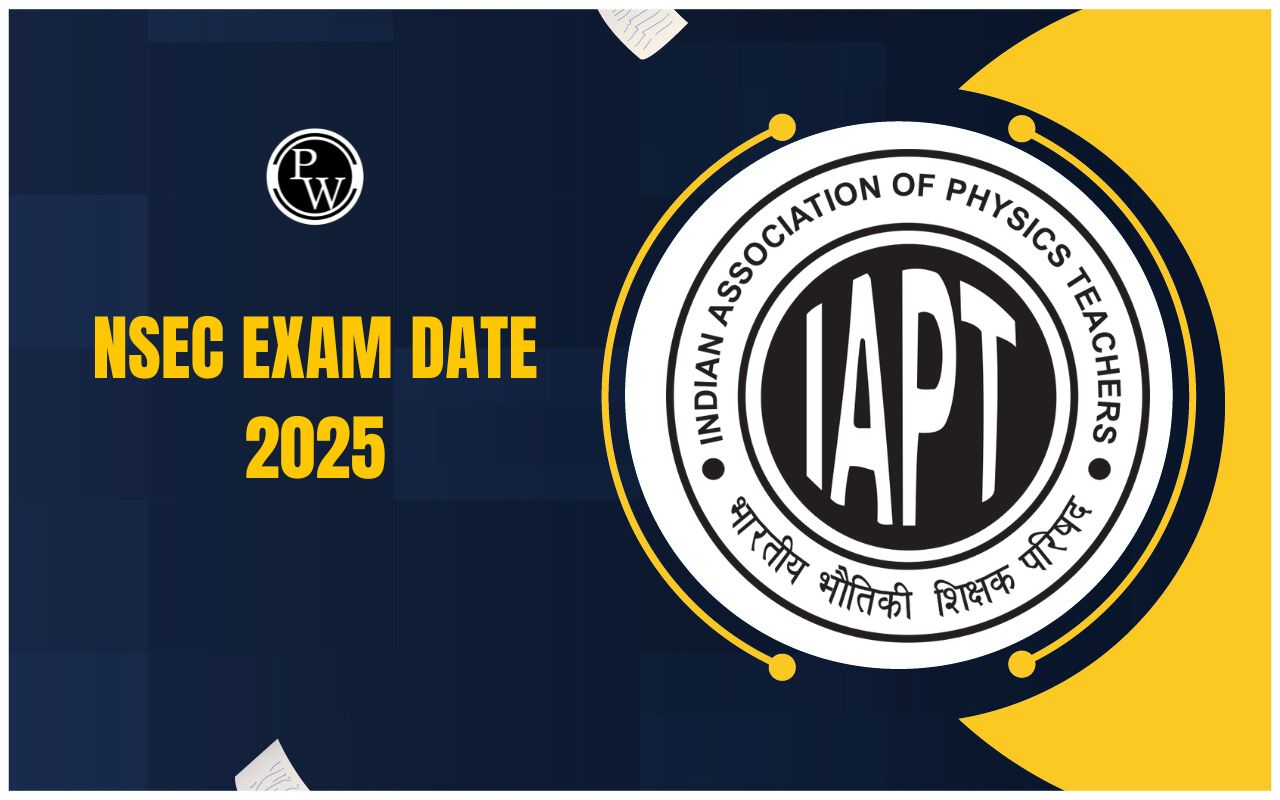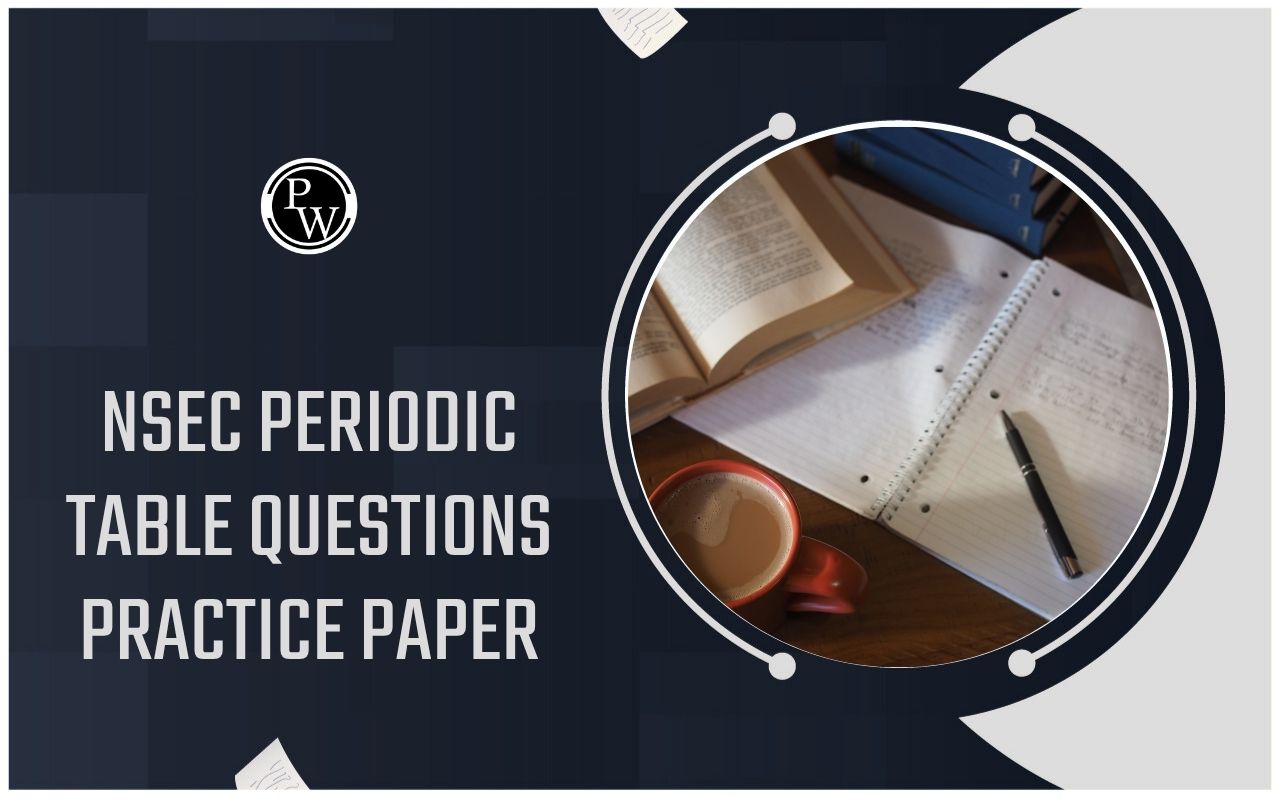
The National Standard Examination in Chemistry (NSEC) is significant in India, aimed at higher secondary school students for Classes 11 and 12.
NSEC is the first stage for students aspiring to participate in the International Chemistry Olympiad (IChO), Conducted annually by the Indian Association of Physics Teachers (IAPT) in collaboration with the HBCSE.
The NSEC is designed to evaluate students' understanding of chemistry and identify candidates with exceptional talent. The top 1% of participants are selected to advance to the Indian National Chemistry Olympiad (INChO), which is followed by Orientation-Cum-Selection Camp (OCSC) and IChO.
NSEC enhances students' understanding of chemistry and provides valuable exposure and recognition, which can be advantageous for future academic pursuits and career opportunities in science.
NSEC Exam Pattern 2025
The NSEC Exam consists of objective type/multiple choice questions. Part A has 48 questions, with +3 marks for each correct answer and -1 mark for an incorrect answer. Part B has 12 questions, with +6 marks for each correct answer and 0 marks for an incorrect answer. Below are the details of the NSEC Exam Pattern 2025.
-
Maximum Marks- The question paper will be a total of 216 marks.
-
Type of Questions- There will only be multiple-choice or objective questions.
-
Duration- The exam will last 2 hours (120 Minutes).
-
Question paper will be in English & Hindi
Part 1:
-
48 questions with one correct answer.
-
Each correct answer awards +3 marks.
-
Each incorrect there will be a deduction of 1 mark.
Part 2:
-
12 questions with multiple correct answers.
-
A score of +6 marks is awarded if all correct options are selected without marking any incorrect options.
-
No negative marking.
MOST IMPORTANT QUESTIONS OF NSEC
NSEC Eligibility Criteria 2025
-
Must be eligible to hold an Indian passport.
-
Date of birth between 1 July 2006 and 30 June 20011, both days inclusive.
-
Must be residing and studying in India since 30 November 2023 or earlier. OR Must be studying in an Indian school system since 30 November 2023 or earlier.
-
Must not have completed (or scheduled to complete) class 12 board examination earlier than 30 November 2025.
-
Must not have commenced (or planning to commence) studies in a university or equivalent institution by 1 June 2025.
-
Must not be appearing in NSEJS 2025.
NSEC Syllabus 2025
The NSEC Syllabus is entirely equivalent to the academic curriculum followed by CBSE, ICSE, and other state boards. It covers topics from both Class 11 and Class 12 chemistry. Below are the detailed NSEC Syllabus 2025 for each class.
NSEC Syllabus for Class 11
-
Some basic concepts of Chemistry
-
Structure of Atoms
-
Classification of Elements and Periodicity in Properties
-
Chemical Bonding and Molecular Structure
-
States of Matter: Solid, Liquid and Gas
-
Chemical thermodynamics
-
Equilibrium
-
Redox Reaction
-
Hydrogen
-
S-block Elements
-
P- block Elements
-
Organic Chemistry: Some Basic principles and techniques
-
Hydrocarbons
-
Environmental Chemistry
NSEC Syllabus for Class 12
-
Solid State
-
Solutions
-
Electro Chemistry
-
Chemical Kinetics
-
Surface Chemistry
-
General Principles and Processes of Isolation of elements
-
P-block elements
-
Coordination Compounds
-
Haloalkanes and Haloarenes
-
Alcohol, Phenols and Ethers
-
Aldehydes, Ketones and Carboxylic Acids
-
Amines
-
Biomolecules
-
Polymers
-
Chemistry in everyday life
Books for NSEC Exam Preparation
For candidates preparing for and appearing in the upcoming National Standard Examination in Chemistry (NSEC), a variety of books, including NCERT books, other reference books, resources and practice materials, are essential. Here is a list of Books for NSEC Exam Preparation.
-
NCERT Chemistry Books of Class 11 and 12 - for understanding fundamental concepts aligned with the school syllabus.
-
Pradeep’s New Course Chemistry (Class 11 & 12) - Comprehensive coverage of topics with practice questions.
-
Modern's ABC of Chemistry - A widely used reference that covers essential chemistry concepts.
-
Advanced Problems in Organic Chemistry by Balaji Publications - While primarily aimed at JEE aspirants, it is also beneficial for NSEC practice.
-
Chemistry Olympiad Stage 1 - NSEC 9 Year Solved Papers - This book provides previous years' solved papers, which are important for understanding the pattern and types of questions asked.
-
Perfect Resource Book Indian National Chemistry Olympiad by Dr. Pravin Kumar - includes solved papers and covers various advanced topics, making it suitable for both NSEC and INChO preparation
Time Management Tips for NSEC Preparation
Effective time management is important for preparing for the National Standard Examination in Chemistry (NSEC). Below are detailed tips to help you optimize your study routine and perform well in the olympiad exam:
1. Create a Study Timetable: Divide specific time slots for the topics included in the NSEC syllabus. Include time for regular revisions and practice problems. Break your day into study intervals to maintain concentration.
2. Prioritize Topics to be covered: Identify high-weightage topics and concepts frequently asked in NSEC olympiad. Start with topics you find difficult and gradually move to easier ones. Use NSEC Previous Year Papers to understand the exam pattern and prioritize accordingly.
3. Practice NSEC Mock Tests: Solve full length NSEC Mock Tests under timed conditions to simulate the actual exam environment. Analyze your performance after each test to identify weak areas and work on them.
4. Stay Consistent and Avoid Procrastination: Stick to your NSEC Study Plan without delays. Small, consistent efforts daily are more productive than cramming at the last moment.
5. Practice with NSEC Previous Year Papers: Solve NSEC Previous Year Question Papers to familiarize yourself with the exam format and types of questions. Time yourself during practice sessions to simulate real exam conditions and improve speed.
6. Take Care of Your Health: Ensure adequate sleep (7–8 hours per night) to stay alert and focused during preparation. Incorporate short breaks, physical activity, or relaxation techniques like meditation to recharge your mind.
Common Mistakes to Avoid During NSEC Preparation
By being aware of these common mistakes and actively working to avoid them, students can enhance their chances of success in the NSEC Olympiad. Here are some key mistakes to watch out for:
1. Overlooking the NSEC Exam Pattern
Understanding the NSEC Exam Pattern is important. The NSEC Exam consists of objective questions. Familiarizing yourself with the Pattern helps in effective time management and preparation strategies.
2. Neglecting Conceptual Understanding
Many students focus on memorization rather than grasping fundamental concepts. It is important to understand the reasoning behind solutions, especially in chemistry concepts, to perform well under exam conditions.
3. Avoiding NSEC Mock Tests
NSEC Mock tests are essential for simulating the exam environment. Skipping these can lead to poor time management and increased anxiety on exam day. Regularly practicing NSEC Mock Tests helps build confidence and improves speed.
4. Ignoring Time Management
With a limited time frame to answer all questions, effective time management is vital. Students often get stuck on difficult questions, which can prevent them from completing the exam. A strategic approach is to tackle easier questions first and save challenging ones for later.
5. Insufficient Revision
Regular revision is often neglected as students dive into new topics. This can lead to forgetting important formulas and concepts. Establish a structured NSEC revision schedule to reinforce your learning continuously
6. Ignoring Health
The NSEC preparation process often leads students to neglect their physical and mental health. A balanced lifestyle that includes proper nutrition, exercise, and adequate sleep is important for maintaining focus and productivity during study sessions.
How to Prepare for NSEC? FAQs
Q1. What is the NSEC Exam?
Q2. How to prepare for the NSEC exam?
Q3. Who is eligible for NSEC?
Q4. What subjects are included in NSEC Olympiad?
Q5. What are the common mistakes to be avoided while preparing for the NSEC Exam?


